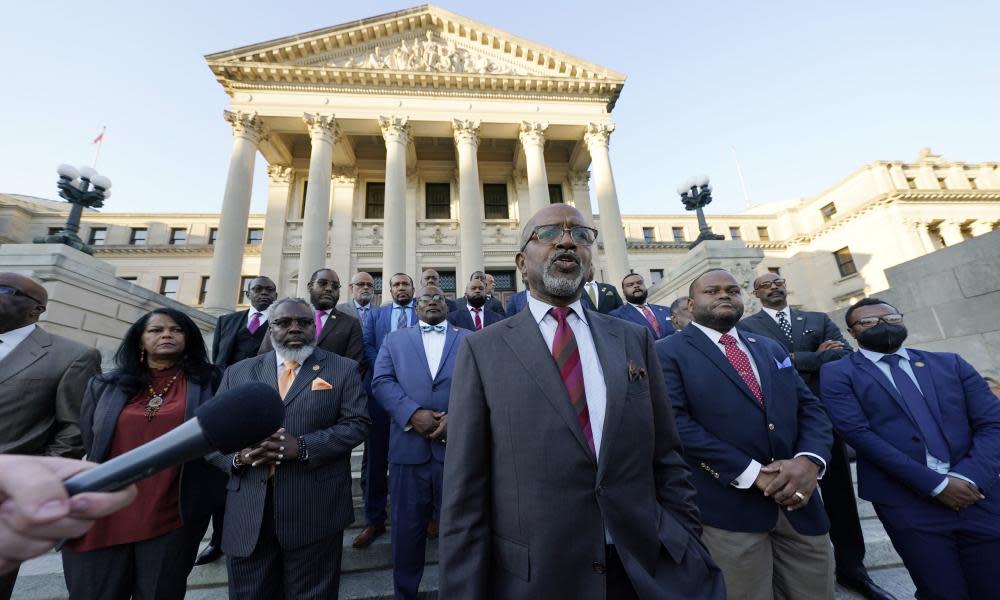Uproar as Mississippi signs bill to limit discussions of race in school lessons

Mississippi’s governor signed a bill on Monday to limit how race can be discussed in classrooms, marking the latest move in a Republican-driven battle over “critical race theory”, an academic framework that examines how racism has shaped US public policy and institutions.
The Mississippi bill has sparked opposition from Black lawmakers, who have said its passage could squelch honest discussion about the harmful effects of racism.
The short title of senate bill 2113 says it would prohibit “critical race theory”. But the main text of the legislation does not mention or define the theory, and many supporters of the bill also have said they cannot define it.
Tate Reeves, the state’s Republican governor, has denied the bill is an attempt to limit the teaching of history. “Contrary to what some critics may claim, this bill in no way, in no shape and in no form prohibits the teaching of history,” Reeves said in a video posted on social media.
“Any claim that this bill will somehow stop Mississippi kids from learning about American history is just flat-out wrong.”
Related: The ACLU on fighting critical race theory bans: ‘It’s about our country reckoning with racism’
The new law says no school, community college or university can teach that any “sex, race, ethnicity, religion or national origin is inherently superior or inferior”.
Critical race theory examines how US institutions such as the criminal justice, housing and legal systems were shaped by racism, and how this in turn perpetuated the dominance of white people in society. CRT has recently emerged as a conservative flashpoint, with Republicans whipping up a moral panic that it is being forced upon school children, even when it is not on the curriculum.
Carey Wright, the Mississippi superintendent of education, said critical race theory was not taught in the state’s schools. The University of Mississippi law school offers an elective class on the theory.
The ACLU of Mississippi said in a statement that laws opposing critical race theory “are thinly veiled attempts to silence discussions of race and gender among students and educators”.
The Republican-controlled house voted 75-43 to pass the bill on 3 March after a six-hour debate in which several Black lawmakers gave impassioned speeches in opposition. They said the legislation would limit teaching about racism because parents could complain if history lessons made white children uncomfortable.
When the bill passed the Republican-controlled senate in January, all of the Black senators withheld their votes and walked out in protest.
Republicans across the country have been raising money by saying critical race theory is a threat and multiple Republican-led states have banned or limited the teaching of critical race theory or similar concepts through laws or administrative actions.
Mississippi has the highest percentage of Black residents of any state – about 38%. Along with other states in the deep south, including neighboring Alabama, it was a crucible of the civil rights movement.

